News & Commentary
Dec 08, 2018
The Right to Vote Belongs to the People
The right to vote is fundamental to our democracy. It must be treated as irrevocable. Politicians should not be able to use the right to vote to reward or punish people. The right to vote should be treated in the same respect as other fundamental rights in our democracy, such as freedom of religion
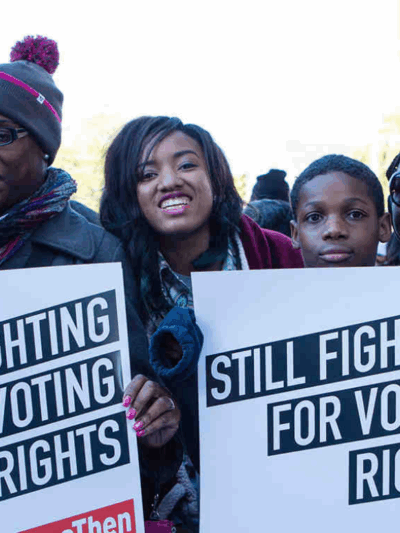
Mar 27, 2018
Chaz Nuttycombe: Your Vote is Your Power
What you’re doing right now is powerful, but the most powerful tool in the arsenal of a citizen in this great country is not your right to protest, but your right to vote.
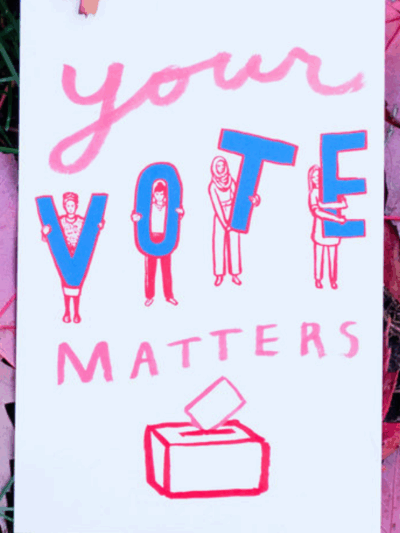
Jul 12, 2017
Guarantee the Vote
Voting, like freedom of speech and religion, is a fundamental right that government cannot deny. It is time we made clear that the vote is the essential currency of democracy, and it belongs to the people.
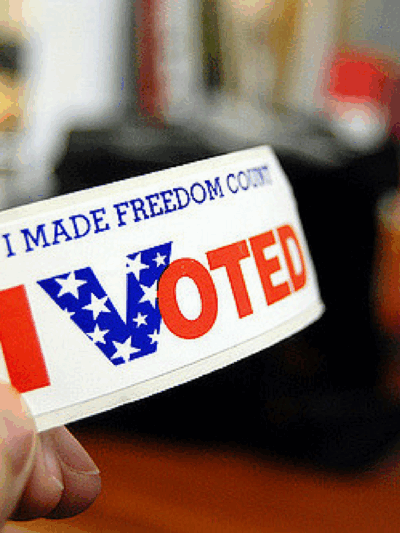
Mar 15, 2017
WATCH: Our Executive Director Claire Guthrie Gastañaga's Remarks in response to U.S Attorney General Jeff Sessions' Visit to Richmond
On Wednesday, March 15, U.S. Attorney General Jeff Sessions met with local, state, and federal law enforcement representatives in Richmond on violent crime and public safety. Our Executive Director Claire Guthrie Gastañaga addressed a crowd of protesters, who showed up to oppose the Trump administration's unconstitutional policies, in front of the SunTrust Center, where the meeting took place. You can watch her address here:
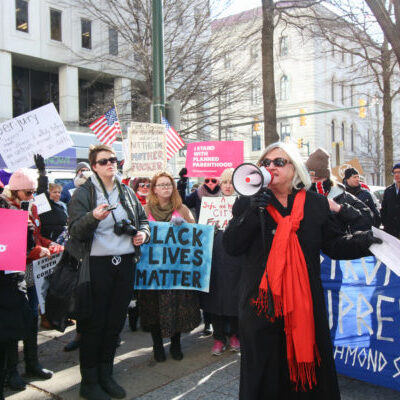
Mar 02, 2017
WATCH: 2017 General Assembly Post-Session Wrap-Up
Please re-watch our Facebook Live review of the 2017 General Assembly session regarding civil rights and civil liberties in Virginia. In this video, we discussed major bills that we'd like Gov. Terry McAuliffe to veto and explained why those bills, which concern free speech, immigrants' rights, LGBT rights, and voting rights, are harmful to civil liberties in Virginia.
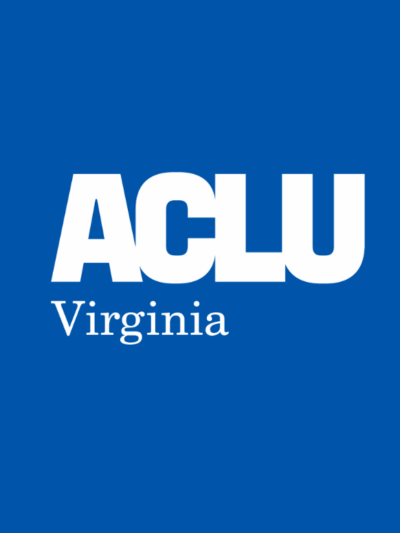
Feb 09, 2017
Our Greatest Hits in Under Two Minutes
Want to get a better idea of how the American Civil Liberties Union has made America better? Take two minutes and watch our highlights reel.

Nov 02, 2016
Voting Officials, Police and Prosecutors Must be Prepared to Act on Any Voter Intimidation
The right to vote is a vital to our democracy. No person should be permitted to engage without sanction in conduct that threatens that right.

Oct 12, 2016
VIDEO: Let's Talk About Voting in Virginia
Please re-watch our Oct. 12 Facebook Live conversation on the topic of voting in Virginia as we run up to this year's election on Nov. 8, 2016. More information is available here, and please remember to take your photo ID to the polls and contact the ACLU of Virginia at 804-644-8080 or aclu@acluva.org if you experience problems on Election Day.

Aug 02, 2016
Exciting Times Nationally for Voting Rights but Va. has a Long Way to Go
Voting rights advocates are rightfully celebrating a string of recent voting rights victories in federal courts in North Carolina, Kansas, Wisconsin and Texas.The U.S. Circuit Court of Appeals for the Fourth Circuit (of which Virginia is a part) ruled unanimously in late July that North Carolina’s current voting laws intentionally and unconstitutionally discriminate on the basis of race.Right after the U.S. Supreme Court gutted the Voting Rights Act in 2013 in the case of Shelby County v. Holder, which freed North Carolina, Virginia and other southern states from the Act’s pre-clearance requirements, the North Carolina legislature acted to make it more difficult for North Carolinians to vote. Before then, North Carolina had same-day registration for all voters, pre-registration for 16- and 17-year-olds, broadly accessible early voting, out-of-precinct provisional voting and flexible voter ID requirements.The Appeals Court found that the legislature actively consulted data that made clear that African Americans disproportionately took advantage of these pro-voting laws, and that it acted deliberately and intentionally to reduce voting by African Americans. The Court’s decision was an appropriate repudiation of this injustice and intentional discrimination..The sad reality of this decision, however, is that it illuminates how much further ahead of Virginia North Carolina was before it passed the post-Shelby legislation declared unconstitutional last week.Here’s how pre-Shelby North Carolina compared to current Virginia voting rules:

Stay Informed
Sign up to be the first to hear about how to take action.
By completing this form, I agree to receive occasional emails per the terms of the ACLU’s privacy statement.
By completing this form, I agree to receive occasional emails per the terms of the ACLU’s privacy statement.
